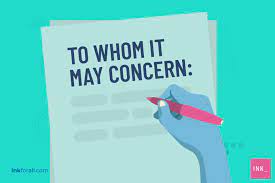How to Create an Astonishing Query Letter
Query letters are a vital tool for writers seeking to get their work published. Whether you're submitting a novel, a non-fiction book, or an article to a magazine, a query letter is your chance to convince an editor that your work is worth their time and attention. Crafting a great query letter can be a challenge, but with the right approach, you can create a letter that stands out and captures the attention of editors. In this article, we'll explore some tips and tricks for creating an amazing query letter.
1. Do Your Research
Before you start writing your query letter, take the time to research the publications you want to submit to. Make sure you're familiar with the tone, style, and content of the publication, and check their submission guidelines to make sure your work is a good fit. You should also research the editor or agent you're addressing your letter to, and try to personalize your letter as much as possible.
2. Keep It Concise
A query letter should be brief and to the point. Most editors and agents receive dozens (if not hundreds) of query letters every week, so you need to make sure yours stands out. Keep your letter to one page or less, and focus on the key elements of your work. Include a brief summary of your project, along with any relevant information about your qualifications or experience as a writer.
3. Show Your Personality
While you want to keep your query letter professional, it's also important to let your personality shine through. Avoid using a generic template or copying someone else's query letter. Instead, write in your own voice and show why your work is unique and compelling. This will help you stand out from the crowd and make a stronger impression on editors and agents.
4. Be Specific
Don't be afraid to get specific about your project in your query letter. Provide details about your plot or your thesis, and give examples of the types of sources or research you've used. This will help the editor or agent get a better sense of your work and its potential.
5. End with a Strong Closing
Your closing should leave a lasting impression on the editor or agent. Thank them for their time and consideration, and include a brief call to action. For example, you might say something like, "I look forward to hearing from you soon," or "I would be happy to provide more information or answer any questions you may have." This shows that you're serious about your work and interested in building a professional relationship.
In conclusion, writing an amazing query letter takes time, effort, and attention to detail. By doing your research, keeping your letter concise, showing your personality, being specific about your project, and ending with a strong closing, you can create a letter that stands out and gets noticed. Remember, the goal of your query letter is to convince editors and agents that your work is worth their time and attention. With the right approach, you can achieve this and take a big step toward getting published.
